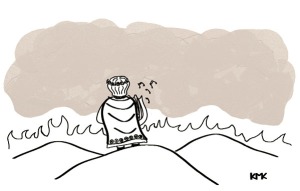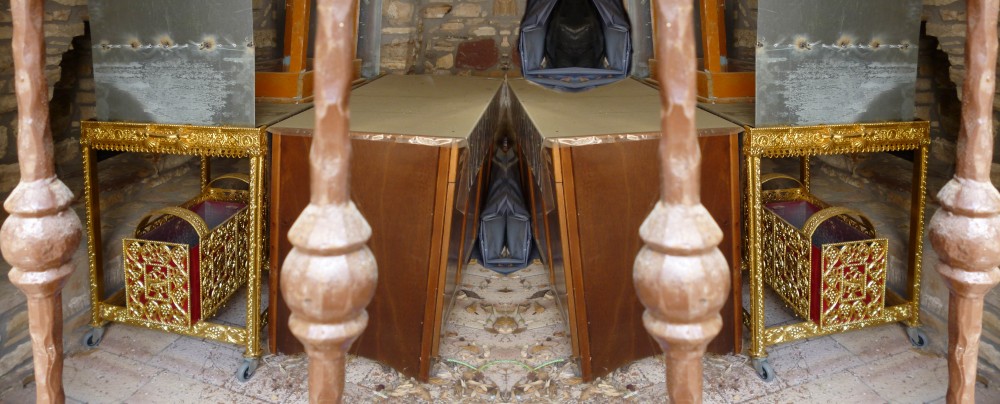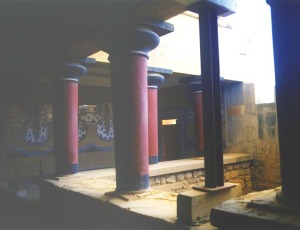Last time I visited a prehistoric village. There they were showing us a fire dance. A sjaman led the way. They were singing: ”The fire, the fire, the holy fire.”
Then, one of the visitors made this remark: ”Look how wonderful, how they were living in harmony with nature. They took and they gave back in return.”
Sorry, but I must object against the idea that primitive and early civilizations lived in harmony with the nature. It’s a mere wishful thinking. I know several examples of serious damages to nature caused by our far ancestors.
Nowadays most people feel they have lost the connection with nature. We require the utmost of earthly resources by industry, we are cutting rainforests. Many people feel themselves overwhelmed by technology. We don’t know what is in our food anymore and so on. As an escape many groups started fantasizing about an ideal society. An unspoiled life in a untouched nature, inspired by philosophers like Rousseau with his “Noble Savage”, the “Noble Wildeman”. This people projected their longing for idealization on early civilizations. But I dare to say, nowadays, man is more conscious about the environment than ever before.
You don’t need sophisticated technology to ruin your environment. Not even stone axes. Fire will do. (The fire, the fire, the holy fire.) First, let me tell you about the Clovis Culture, one of the first inhabitants of America. They crossed the Bering Strait, between Russia and Alaska forty thousand years ago. They didn’t use spears to hunt, but flaming torches. So they shooed the buffalos across a steep rock and drove them over the edge of the cliff. A herd of five hundred animals were smashed down by a tribe of indians which consisted at most of forty people, archeologists found out. How much did they need to eat?
Secondly, let us travel to the Greek island of Crete. Until two thousand years before Christ, the island was a jungle. Lions and elephants and other tropical animals walked about. Until local leaders in the city of Knossos decided to build a huge palace or temple, archeologists are still not sure about that. That took a lot of trees. In the centuries following, up to fourteen hundred years Before Christ so many trees are downed, that the landscape became flat and dry. The lions and elephants disappeared. The leaders wanted to show their power or honor the gods. Rather than caring for nature. But what surprised me the most was the recent discovery of the amount of methane emissions during the Roman Empire. Among other things, this gas is released by burning wood and fossil fuels. So much biomass was burned by Roman people that it has affected the atmosphere by then and left many traces in polar ice. Above all the invention of agriculture itself ten thousand years ago is a major polluter.
But what surprised me the most was the recent discovery of the amount of methane emissions during the Roman Empire. Among other things, this gas is released by burning wood and fossil fuels. So much biomass was burned by Roman people that it has affected the atmosphere by then and left many traces in polar ice. Above all the invention of agriculture itself ten thousand years ago is a major polluter.
This is just a tip of the iceberg.
Finally, I hope I have made clear that the harming of the environment is not just a item of modern times and of modern people. Never ever were people living in harmony with nature, giving in return what they have taken. Not all early
civilizations were destructive to such an amount, but there were ones who did, like the Clovis culture, the Cretans and the Romans. Are they to blame? No, they did not have the knowledge about ecosystems and the conscience that they had caused damage. They just used nature as a tool to fulfill their needs. It is as old as mankind.
Therefore, stop idealizing!

